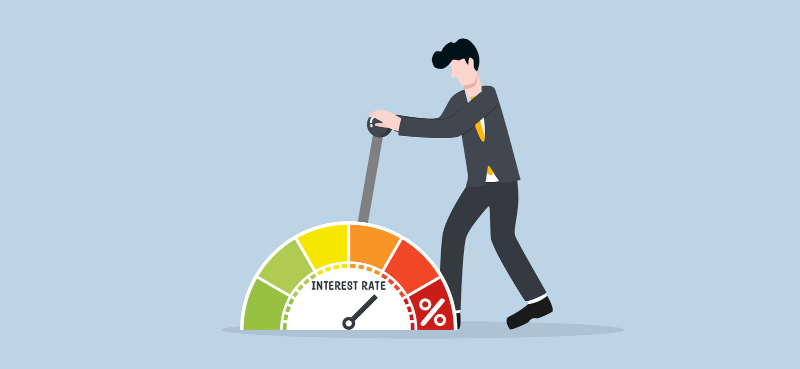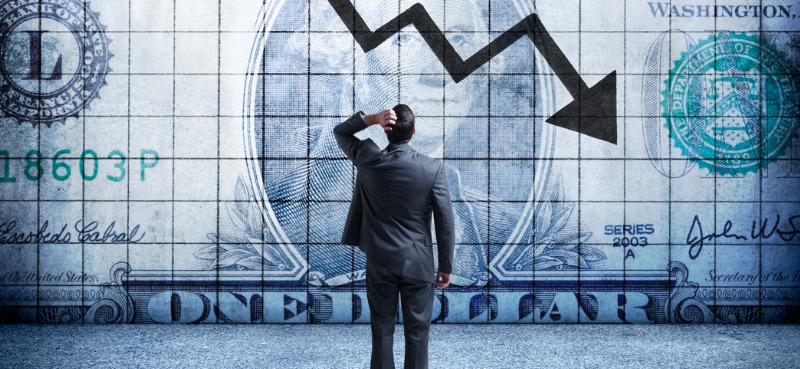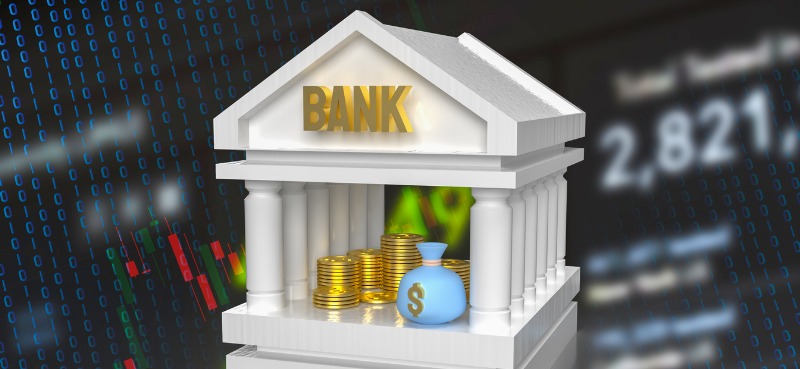Hey guys, Frank here.
Lenore Hawkins, chief macro strategist at Tematica Research, is living under quarantine in Como, Italy.
I spoke to Lenore last month in the early stages of the Italian lockdown. It’s now week 5—and the reality is setting in…
In today’s exclusive follow-up interview, we discuss the shocking reality of life under quarantined Italy… and what Americans may soon have to face.
It’s a fascinating, emotional conversation that reveals the “real” economy vs. the financial economy. And why the difference is critical for investors to understand in these times.
We discuss:
Hazmat suits in the grocery store [2:46].
The two things that need to happen before the Italian quarantine is lifted [6:20].
“Societal PTSD” and the devastating conditions on the front lines of the pandemic [9:33].
The economic impact on Italy and Europe [14:15].
The economic and behavioral shifts we may see in the U.S. [21:40].
What’s happening in the market now [29:10].
The light at the end of the crisis: How America could change for the better… including two sectors to watch [34:50].
After the interview, stick around for my summary of the times ahead… and a special offer you don’t want to miss [38:08].
Wall Street Unplugged |
Is the U.S. on the brink of collapse?
Frank Curzio: Lenore Hawkins thanks so much for joining us again on Wall Street Unplugged. We interviewed you a month ago when you were first on lockdown. Now today it’s a month later still on lockdown.
Lenore Hawkins: Week five.
Frank Curzio: Week five yeah.
Lenore Hawkins: Not that I’m counting.
Frank Curzio: Why don’t you talk about, what has happened over those five weeks? Because we’re in the U.S. here and we want to know because you have that playbook. When we look at China, we don’t know whether we can believe China or what’s going on with China because they’ve lied a lot so far, which is unfortunate. But Italy is, the whole world is looking at you to see, okay, When could we open up? What have you seen over the past month?
Lenore Hawkins: So, when we first went into lockdown at first it was disbelief which I think is similar to what the U.S. is seeing the kind of, “Wait, how can this happen?” Because it’s just so outside of the norm of anything any of us had ever experienced to actually be in a situation where you’re not supposed to leave your home just is completely crazy. But then there was a lot of solidarity around it because you were seeing the images of what was happening in hospitals and hearing about the deaths and it was, “Wow okay, we’re all in this together and we’re going to help.” And so, people were the images that we had here and then I was laughing seeing them in the States too where everybody goes outside, at a certain hour you clap, and we’re all in this together.
Lenore Hawkins: And then it starts to get really old, and you go through these ups and downs with, “Wait, the data’s improving. Wait, no.” And it’s funny, I’m seeing now all this, “The data in the States is getting so much better.” Okay if you look at the level of testing, we have no information I don’t know if it’s getting better or if it’s getting worse, the level of testing in most states is just unbelievable how small of a percent of the population we actually know anything about. So how do you say whether the cases are rising or falling? We don’t know. And it’s way, way, way smaller than what we’ve seen in Europe.
Lenore Hawkins: So, there was the ups and downs and then it’s gotten, what’s been the tough thing is it’s the bumping it out because at first it was like two weeks, all right three weeks. Now we’re in our fifth week, and they may start loosening up after Easter which would be a full six weeks before just the tiniest bit of starting. And during that time, they have been clamping down more and more where at this point, if I walk outside and I don’t wear a mask, I’m going to get fined. And the kinds of protections like just to go to the grocery store, you walk in there and the guy’s wearing a full hazmat every time, very few people let in. And you get your temperature checked before you walk in to the grocery store. And then you’ve got people in the grocery store who are also all fully hazmatted out. And they’re following you, and as you’re walking by, they’re scrubbing things and cleaning everything.
Lenore Hawkins: And it’s just, it’s beyond surreal so you really don’t even… You’re dying to go outside, but then if you do, it’s just really, really depressing. But what we’re seeing now is also a lot of frustration because there’s no clear plan. There’s been not much communication. It’s like you have everyone in Italy like all 60 some million of us sitting on a plane, the flights delayed, it keeps getting delayed, and no one’s telling us how the hell we’re ever going to get out.
Frank Curzio: You know what, talk about the grocery store because we’re not doing anything close to that. I mean it’s been like, “Hey you go to the grocery store, six feet away,” and they wipe down stuff after you’re done checking out. But we’re just starting to wear masks, just starting. We’re not getting our temperature taken before we go in. They are starting to limit in some Walmart’s, the amount of people going in. But everything is like you said with the testing, we don’t even know but the market is up this week tremendously. Talk about in Italy, are the shelves empty? And you talked about the frustration because everyone’s clapping and everyone’s like, “Hey, we’re in this together,” but now when you keep going and going, and now there’s no plan, you still don’t know when you’re coming back, right?
Lenore Hawkins: Yeah, I mean they’re trying, they’re definitely trying, but we have two issues. One, it’s a fairly accepted fact that this government is a freaking disaster. The way a government forms in Italy is you have to have which political party gets the majority of the vote. And then if you don’t get a majority then you have to form a coalition and that ends up being a mess because you have groups of people working together that have nothing in common philosophically, so we have that situation. We have a prime minister who really has no business being a prime minister. He got it because the coalition thought that they could control him and get him to do what they wanted, so that’s a bit of a mess. And when you have a bunch of people who really don’t have any kind of consistent view of how to get things done, it’s not going to go well, so it’s not going well and you have a country that’s already completely broke before any of this started. So it’s the worst of all possible conditions.
Lenore Hawkins: We’re hearing that, okay, they get that they need to do testing. They’re going to start opening the tiniest little bit on, I think it’s the Tuesday after Easter, but to be fair, no one knows this playbook. And we can’t trust the data out of China, we have no idea what really went on there. I mean we do know, looking at what has happened in Europe, that it’s highly unlikely that the data out of China has been even reasonably within the ballpark. And we’ve all heard about the intelligence report that was delivered to the White House that said, “Yeah no, those numbers make no sense.” So without that, we don’t really have a good playbook and obviously this thing is so contagious ,,and you still have an awful lot of people who have it and the testing has not been able to keep up so we don’t really know how many people have it.
Lenore Hawkins: So, when you open it up and you let people start interacting again, is it going to go up? So what we saw was before the lock down the R0, which is the rate of contagion, was somewhere between 2.3 and 2.7. So that means that for every person who had it, they were going to infect 2.3 to 2.7 people and obviously with that, that’s just going to explode so that was at lockdown. Today the R0 they’re estimating is around 1.2, still way too high because if you’re over one, it’s just going to keep growing, you’re not going to work your way out of it. They’re hoping that the R0 gets down to 0.7 by the time we open up.
Lenore Hawkins: Now the big thing is testing, and so we need two kinds of tests. We need the tests for people who are sick to be able to very quickly go either you’re sick or you’re asymptomatic. So that makes it even more complicated because asymptomatic people walking around getting people sick. We need to be able to do that very quickly, very efficiently, continually, and not for a whole lot of money because we’re broke, the country. And you also need the antibody tests. There was just today announced another company in Italy that hopefully has a very effective antibody test. They think they can test about a million, sorry half a million people a week and do it for five euros, so that would be great if that works. But those two things are absolutely mandatory to be able to actually really start opening up the economy. Because if you have that, that is the game changer. If we know who has it and we can, “Okay, you can’t come out and play,” then the economy can get back to work.
Lenore Hawkins: But so far, I mean, we just heard from the UK that all the tests that they ordered don’t work because this has been rushed. If you come up with a test for antibodies, and you run a hundred tests through it, looks pretty good, that’s what they had. When you start running 20,000 tests through ,you start finding out, “Oh no,” and that is the problem here everybody is running as fast as they can to try and get these tests done.
Frank Curzio: Now you have had the coronavirus, so you said you might’ve had it before this really became a thing, you didn’t even know. We’re hearing that a lot in the U.S. as well because there was a big respiratory thing going around probably around November, December. People thought it was the flu, it wasn’t the flu and it was two weeks and people green coming out of their mouth. It’s just it was pretty intense. I wonder if this is something that maybe has been around that we’re just starting to know now, and if that’s the case, that might be good, because then some people are immune to it, right?
Lenore Hawkins: Yeah, it would be fantastic to know. And we do know that the actual number of people who have it is way higher than what we know, I mean probably magnitudes. We just don’t know is it three times or 300 times. We just, we don’t have any feel for that, and that’s where we really need the testing because if it is exactly like you said, if it is more like 10, 20, 30 times higher than the numbers that we know, then we’re in actually much better shape because that many more people can just get back to work.
Frank Curzio: Now, I’ve been following your Twitter religiously because just you’re providing updates from boots on the ground, so nobody knows more than people who are actually there of what’s going on. And again, everyone’s looking at Italy as a playbook. What I notice through your posts is that the emotional, just everybody’s emotional about it, but when you really see someone on lockdown this long and seeing it, and it’s not just happy when you’re looking at the cases come down, but also sadness when you’re starting to talk to doctors. I know that you’re hearing actual people, I’m not too sure if you know them personally and not that are dying, when doctors have to choose who lives and dies. Talk about the emotional toll because you just see it in your posts, which is really cool, it means you care, but it’s remarkable when you see someone on the front lines like this. That’s something that touched me actually.
Lenore Hawkins: Thank you. Yeah. I actually think that’s one of the things that is underappreciated about all this. There’s some form of societal PTSD that’s going on, because what we all viewed, particularly in countries that have been hard hit, or areas like New York, what you viewed as your potential risks in life or how the world could change from day to day, has been completely up-ended. Here, we’ve had hundred, like over a hundred doctors and nurses have died because they’re on the front lines treating people. We’ve had doctors who’ve come out of retirement. Here’s somebody who served their whole life, they’re now going to enjoy sunset with their family and they come out of retirement to help, and they die a horrific death.,
Lenore Hawkins: We’ve had, and New York’s been facing this, and Spain has just had it be brutal, where doctors have really had to pick who they’re going to try and save and who they’re going to just help die as painlessly as possible because they don’t have the resources. We have Spain, Madrid, had to put bodies in an ice rink because they ran out of capacity. New York is putting bodies in refrigerated trucks. In Italy, we’ve had the military has been filling up trucks with bodies because in the epicenter, Bergamo, the area that was really, really hard hit, they couldn’t handle the load. I mean, those are family members, those are loved ones. How do you ever think of the world as the same? Something so horrific is actually possible, and it is possible on a moment’s notice, and that’s just the emotional side.
Lenore Hawkins: Then you look at the business side, here in Como, it’s a tiny town. You think of it as big because it’s famous, George Clooney made it really famous here, but it’s actually a very small town. And so, I know personally most of the people who run the restaurants and more of the small shops around town, and I’ve been calling and talking to them and on WhatsApp with them, and the devastation is just incalculable. You’re a restaurant, and this is something that we’re going to see all over the place, you’re a restaurant in one of the most popular vacation destinations in the world and you’ve been doing this for…
Lenore Hawkins: Like one of my favorite restaurants, Dezumine, he’s been doing this, her family for 30 years, never had a problem. They’re super popular, incredible food, everyone knows them, everyone loves them, the locals and all the hotels recommend so they always have more business than they can handle. And they don’t know how they’re going to make it. They don’t know when they’re going to open up again. How do they feed people, right? Because it’s a cute little normal place, you can’t pack all the people in you used to pack in. Are they going to go out of business? And that’s everywhere.
Lenore Hawkins: How do you recover from that? From all the waiters and clothing shop people and just every kind of business outside of the high-end, the more professional services that group’s pretty safe. The people who have been struggling for ages with wages not growing in much of the Western world, they’re the ones getting hardest hit. That’s a recipe for some serious social upheaval and a lot of suffering.
Frank Curzio: Yeah. And I appreciate you sharing that with us. Again, I’ve seen it through you’re not at all like some people use social media to be someone that they’re not. You really laid it all on the line and your emotions out there and I appreciate it. It’s from the front lines. And we do know people that are sick that are dying and it’s unfortunate and it’s hard to transition from what we just talked about. But I want to go into the economic impact here. You mentioned Italy, how bad it was, we all knew how bad it was. We were barely seeing growth on the GDP level, this was pre-coronavirus.
Frank Curzio: How do you see things playing out? It’s an impossible question really to answer, but from someone with your knowledge, that you’re in Italy, that you’re a macro strategist, doing this for 20 years. I’d just like to get your thoughts on that because the whole U.S. is waiting too, and to think that everything’s okay and our market is up 10% while everything’s still closed. They’re not even getting checks to people yet. Business loans are like, “Well, prove everything, every mortgage, everything, it doesn’t matter.” It can’t be this easy, or we’ll never crash again if the government’s just going to throw everything at it. What are you seeing in Italy, and then maybe talk about what you’re going to see in the U.S. because of course you follow the U.S. religiously.
Lenore Hawkins: Well, so, in Italy, they’re trying come up with all kinds, and they just approved another program to help small and medium businesses so that they can borrow money for six years at a basically nonexistent interest rate like 1% with no interest due until the end, until six years term to try and help. While that’s something it’s better than nothing, but you’re talking about businesses that have been incurring so they’ve got all these expenses coming in and no revenue, they’re shut. So their income statements looking pretty bad, which is not making their balance sheet look so great. And now at the end of that, we’re going to dump a loan on top of them to try and get through this, and that’s in an economy that’s already really struggling. And this is the really concerning part, is that, so Italy’s economy, government spending accounts for about 48% of Italy’s GDP. Holy crap, right? That’s so roughly half of the economy is the government spending and the government debt to GDP is already 130%.
Lenore Hawkins: Well now the private sector is shut down completely, so what are you going to do? How are people going to get money? Well, the government’s going to have to spend. So what you’re going to get government spending up to like 60, 70% of GDP, you can’t do that. The economy can’t survive because that spending then how are you going to pay for it? Well, taxes. Oh crap. Like what? The 30% of the economy, that’s the public sector, that’s going to pay the taxes? So that’s not clearly going to work.
Lenore Hawkins: And now you’ve got the European Union, a lot of complaining, especially from Spain and France, and we’re supposed to be a union, we’re supposed to all have each other’s backs, and there’s not a whole lot of that going on. So today is yet another meeting of the finance ministers to try and work something out, but talk about being between a complete rock and utter hard place. So there’s this talk of the corona bonds or the Euro bonds. The problem is that is it’s unconstitutional for all the countries involved pretty much, particularly Germany, which is the big tough one. And it’s also not, it’s not doable under the current European Union articles. So what do you do?
Lenore Hawkins: Well, people are trying to get a little creative around it, but the problem is, you’ve got economies that have been so weak for so long, and now they’re going to get destroyed, and you just, what do you do? There’s all that massive debt out there, and you just don’t have a strong private sector that can handle at any point ever paying that debt back. And it’s not like Germany is going to be really excited about paying for the Italian debt, moral hazard and all that. And the worst part is, at a time of crisis like this, you don’t exactly have people going to the government and saying, you need to do less, you need to back off, you need to let the private sector do its thing, which is actually what needs to happen because Italy’s government is just… It crushes the private sector. I mean starting a business here, because I live it day in and day out, starting businesses, getting things done is just it’s a whole level of “oh my God you have to be kidding me.”
Lenore Hawkins: Like getting a damn prescription, you get a prescription for the doctor, you can’t just walk across the street to the drug store and get your prescription. You have to first go to a tobacco shop to get a stamp and pay a fee. That perfectly exemplifies everything here, everything is like that. So there’s no really good answer out of this, and on top of that, you have the leaders of the European Union exhausted emotionally and physically. And you can’t get them in a room together where maybe you could have these side conversations where it’s like, “Have you been here?” They’re doing it on virtual meetings, which is a terrible way to deal with something that, they have no choice, but it’s an awful way to deal with something this challenging. So that’s not a good sign for the euro as a currency, and it’s not a good sign for the dollar as a currency because as the European union gets more and more dicey, that makes the dollar stronger and stronger, which is a huge problem with all the dollar dominated debt out there.
Frank Curzio: That’s a good question. I want to stay on that too. Maybe we could almost finish up with this because I have one more question answered. But where do you see, for me, it scares me when you look at what happened in the 30s where and how big the recession was and you could just follow like a dotted line of how that led to a world war, where you have a euro, where you have a lot of different countries here, where Germany is in a much better position than everybody else. Do they want to be with Italy? Do they want to be with Greece?
Frank Curzio: Do you see this impacting? I mean, we’ve heard this story before how maybe the euro can’t survive, but something like this happens where Italy, all these companies, they’re going to be spending more money. I know that a lot of European banks weren’t recapitalized like we were during the credit crisis, so they were still kind of weak. But what are you hearing out there in terms of, you touched on it a little bit, but not just Italy, but other countries. I mean, you look at France, you look at Germany, I mean I’m sure all you guys are hearing the news all together a lot more than we are here.
Lenore Hawkins: Yeah. So, I think that big question, while a massive question and a really important question, is being put on the back burner for now, like, what if, what if we can’t get an agreement. Just because right now there’s so much focus on just saving lives and trying to get out from under this “Oh my God, how many people are going to die?” And I think there’s still, just like you have in the U.S., there’s still this hope and belief it’s like the disease of the last 40 years that somehow government’s magical and government will solve it and it will all work out just fine. Because we really haven’t had, we haven’t had it in most people’s lifetimes, the last real time for the United States at least… Britain had the Thatcher years in the 80’s, the U.S. had it in the 70s, where there was this real, “We don’t trust you. We don’t think you guys can solve this and it could get ugly.”
Lenore Hawkins: Now the U.S. Had the 80s come after that, and then that that changed a lot, and Thatcher, whether people love her or hate her, when she came in, solved a lot of problems there, but since then, things are pretty good. So nobody really has an idea of a real major failure of government, and that is, we are going to push right up to the brink of that in a lot of different ways, the U.S. included. I mean the U.S., when you look at what this could mean for the U.S. So I looked back, you were saying the Great Depression back in the 1930s. So if we look, to put it in context of what people have been talking about for the U.S., If you look at just the nominal GDP, and I took this data from the Bureau of Economic Analysis, I looked at what happened with GDP year after year after year during that.
Lenore Hawkins: So, the contraction in the economy started in 1930, and the first year was a 12% decline, then the next year a 26% decline, and then the next year of 43% decline. And I don’t mean those aren’t consecutive, that the last year, sorry, the 43 and then 45. So in 1933, the economy had contracted 45% from 1929, so it had just kept going down. So by 1933, the economy was slightly more than half the size it was in 1929, but that occurred over four years. Now, if we look at what the estimates are for the second quarter, you’ve got Bloomberg Economics estimating that the second quarter is going to see a 9% contraction. Huge, but not, I mean, that’s still one of the biggest we’ve ever seen, but not horrific. Wells Fargo is saying 14.7%, JP Morgan is down to 25% contraction, Morgan Stanley is saying a 30% contraction, Goldman Sachs is saying a 34. So they are saying that we could possibly see a contraction the likes of which it took us years to get in the Great Depression that we would see that kind of a contraction in just one go.
Frank Curzio: Yeah, I know it’s crazy. And I guess, why don’t we talk a little bit about that? Because for me, and we’ve been fortunate enough where, when China closed down, you’re closing down the growth market of the world, and we’re trying to go… It was like, “Hey guys, time to take money off the table, definitely take money off the table in early February.” And again, I didn’t plan on this spreading to the U.S., and as it started spreading, I got more and more bearish. And at this time it’s not that I’m incredibly bearish, but this is a sentiment thing. Because I think people believe it’s a light switch, as soon as we go on, everything’s going to go back to normal, and that’s really what’s being explained where at the beginning and one of the reasons why I said take profits… Is because the V-shape recovery that everybody was predicting it’s going to happen right away, and then we’ll compare it to SARS which SARS, China was 3% of the economy back then, it’s 17%, it’s a total night and day situation.
Lenore Hawkins: And the virus was so different too. The virus was nowhere near as contagious, and you didn’t have people who were sick with it walking around not knowing, a totally different game.
Frank Curzio: And now this is the big question for me, I’m trying to figure out, because I’m a people person, I do this podcast, it gets over a hundred thousand downloads. And I get emails from all over the world, which is amazing because that allows you to really stay ahead because you’re getting that stuff in real time, and even China contacts, South Korea contacts, even yourself. I know you’re a people person as well. This is a sentiment thing.
Frank Curzio: Do you see things, especially where you are now being on lockdown for five weeks, do you see things getting back to normal to where people are just going to jump on planes, they’re going to go to Disney parks, you’re going to go to your favorite restaurant more or less now, and aren’t the table’s going to be much more separated? This has a significant impact because this is an economy where you could see 10% less demand is huge. If you do to that across all business, across everywhere. Apple just came out and said, “We’re probably going to produce half the amount of iPhones.” That is massive. So, from what I see this, and I hope I’m wrong on this, I really do, but do you really see everything going back to normal, even by say mid-2021?
Lenore Hawkins: No. I think it’s going to be, we’re in for, there’s going to be, I think a tectonic shift in the economy. One, the Baby Boomers, biggest, biggest generation, they have now been hit hard twice. And, so they were hit financially hard twice, and then this thing came around and it’s gunning for them more than anybody. So that’s going to have a big psychological component. They’re more likely to be much, much more conservative because they just lost a lot of money again, and they’re afraid of being sick, so they’re not out spending. So that’s going to be a big shift.
Lenore Hawkins: If you looked at the employment report, and by the way, our employment report from Friday, which was so horrific, I can’t even wrap my head around it. While the headline wasn’t as, it wasn’t utterly shocking, if you looked at the changes in employment by sectors, it was stunning, drops we’ve literally never seen in history by many, many orders of magnitude in hospitality, in restaurants and bars. Those people who have been hit, and that’s a part of the population that was already struggling to begin with, they’re just being utterly devastated. And I don’t think that these government programs, which are intended to get money to them, it’s not going to go smoothly, so there’s going to be a ton of fear there. So, even when they do get a job back, they’re going to be scared as hell. They are not going to be outspending. There’s going to be this push where the savings rate is going to jump up because we’ve lived through something that was never supposed to happen, and you cannot help but have your behavior change.
Lenore Hawkins: And to your point, are we just going to reshape and pop out? Well, there’s no way. I would say incredibly low probability that we are able to start opening up the economy and that every country who does it just starts opening up, there’s never a problem, that it just works, that we don’t have another big jump up in infection rates, that we don’t have, “Oh God, we’ve got to clamp down again.” And the emotional ramifications of that of just, I get out, I’m finally, I’m good, and a store can start to open, and a restaurant can maybe start serving with maybe a third of the tables they used to have, but they can start serving, and then lo and behold, a month later, bam, lockdown again. The likelihood of that not happening anywhere I think is unbelievably small. We don’t know what we’re doing.
Lenore Hawkins: And no disrespect to anyone who’s trying to handle this, to anyone in government, I mean exactly there’s no playbook. And even the virologists, the best and the brightest in the world, are still struggling to understand the nature of this virus. We’re still not confident. We just had it, we had in the Bronx Zoo, a caretaker gave it to a freaking tiger and then the tiger gave it to other tigers and lions. I mean that doesn’t happen.
Frank Curzio: You know I saw that news and I was like, “Whoa,” I saw that news and that surprised me. As little as that is compared to everybody getting it I was like, “Wow.”
Lenore Hawkins: Yeah, and I mean, that in itself like, okay, it’s funny, and the lions and tigers are expected to survive so that’s, but wait a minute, this is something, so we can’t make really any assumptions that we know about this, that we know how this is going to work. And that that has a lot to say for when we start to open up, and we try to get back to work, just how that’s going to work. And yet when you look at the market, things are going crazy. But if we dig into the details a little bit on what’s going on with the market. Like yesterday, on Monday of this week, we saw the utility sector rose 8%, so that’s a safety play, jumped 8%. And two of the leading stocks were Carnival and Boeing. I mean, what we’re seeing is, that’s a short covering bounce. And on top of that, we have the federal reserve effectively conducting the scope, the magnitude of QE1 every 10 days. So I mean, fundamentals are, talk about muddying the waters and price discovery being challenging at best.
Frank Curzio: So, let’s end this. And it’s funny I like to keep these to 20 minutes, but when you really have a good interview and just so much information, I think could really help people it goes a little bit long, and I’m sorry about that because I know how busy you are but.
Lenore Hawkins: No problem. I’m Irish, I can keep talking.
Frank Curzio: I’m Irish too and I hear you. So the U.S., I mean we’re looking at it from a point of view where you mentioned something that’s very interesting where it’s the worst of the stocks are going higher and those are the ones that have the high short, so you can see a lot of short covering. Let’s end with this, where do you see a light at the end of the tunnel? Because as you could see with this move 10% higher, this came off of Sunday that cases are coming down, New York might be getting better quicker. The president just came on and said look, not the president, but the doctors, you know, Dr. Fauci. They came on and said, “It might not be as worse as we think.” And we saw the market go up 10%, you know what that is? That’s people just totally out of it negative completely looking for a positive. And when they see it, they’re like, “Wow, this is fantastic.”
Frank Curzio: I mean I’m hoping, again, I think we both hope that this is, everything gets better really, really soon. But when you’re looking at statistics, it really doesn’t look like that. If you’re using common sense it doesn’t look like that. But what are you maybe telling investors at your firm from a macro level, or like you said utilities, a utility just went up tremendously. Is it still stay safe? Is it wait for a pullback, we could see the bottoms? I mean what are some of the things that you see? And again I know that you’re a chief market strategist, but this is something that I know your firm definitely looks at.
Lenore Hawkins: Well, my issue with the market right now, and this is normal to see anytime we’ve ever had a huge pullback you always have bounces in it. It never just keeps crashing and crashing. Problem is, I look at the big picture, and we have not worked through a whole lot of issues. So, we have the largest corporate credit bubble in history. U.S. corporations have a trillion dollars of debt, with more than 50% of that is triple B rated, so right above junk, and a bunch of that’s going to get downgraded to junk, obviously. When you have most of U.S. economy is just stopped, much of the global economy is just stopped, that’s going to get downgraded, and that’s going to cause like, “Who’s going to buy?” Because you have all these indexes, all of these index funds, like, who’s going to be there to buy it because the subprime, there’s just there’s not enough there. So that is a big liquidity issue because you don’t have any buyers. We have the biggest student loan bubble in history.
Lenore Hawkins: We have the biggest auto loan bubble in history. We have a huge foreign borrowing bubble. We have a $13 trillion in U.S. denominated debt outside of the country, that’s basically a $13 trillion short position, and the U.S. dollar keeps getting stronger. And we have the biggest bubble basically in monetary policy. We’re in completely uncharted territory. What these central banks are doing, and bless their hearts, what the hell else do you do? I mean, this is a crisis of millennial proportions. They’re just, these are good people trying to do the best they can with the tools at their disposal. But wow, we really don’t know how this is going to pan out, and the amount of pain that we have experienced as far as the markets is nothing compared to what is going on in the real economy.
Lenore Hawkins: And for the longest time, the financial economy has so totally dominated the real economy, that’s where all the eyes were, that’s where, well, things started getting a little wobbly in the financial economy. And a central bank would be there to the rescue because that was their grades, that was where they look to see, “Am I doing a good job, is the economy okay?” So there’s still that focus, because we’ve had that focus since the financial crisis, that it’s really, that it’s about the financial economy. Meanwhile, the real economy is just being devastated to a degree that I think it’s like you don’t believe it, you just, you can’t. You look at the charts and it’s like, “No, it’s fine.” I mean it’s too crazy for words. It’s just, it’s going to be a blip, and we’re going to go back to normal because you cannot wrap your head, I can’t. I mean I have to literally keep a box of Kleenex’s by my desk because as I go through the numbers, I start welling up because these are real lives destroyed.
Lenore Hawkins: So, I think its still time to be very careful. If you want to play around with maybe taking advantage of your, if you have a pop up because we are, I don’t think we’re anywhere near the bottom although trying to time these things, and when you have central bankers and policy makers that are, you never know what the hell they can do. From day to day that can cause a pop. So I think it’s a very dangerous time, but I think we’ve got… The reality of it all has just not even come close to setting in.
Frank Curzio: Well that was supposed to be the light at the end of the tunnel, at the end of it, I appreciate that.
Lenore Hawkins: The light at the end of the tunnel is.
Frank Curzio: I’m not forcing, no, no.
Lenore Hawkins: I actually do, I have a really good one for the American economy actually. So, and a lot of the economy I think. So one of the things that kicked off the trade war because we were, and understandably, America was not so happy about its relationship with China and how much was being manufactured outside of the country. With all of this, I think there’s going to be a shift in the relationship with China particularly, because they really did not, they did not help the world with not being more forthcoming with the actual data and what was really going on there. That probably cost a lot of lives; well, it definitely did cost lives.
Lenore Hawkins: I think all this is really going to, it’s an opportunity for companies and they’re going to be forced to, because of economics and because of politics, to shift their supply chain. And the supply chain has already been shut down, so it’s not like you’ve got to make a decision here, it’s already gone, it’s been shut. And with technology, I think we’re going to have potentially quite a Renaissance of production. I don’t want to say manufacturing because that’s 1980s business. But actually, the production of goods can happen in the United States at a much faster pace, and I think there will actually be incredible strides, like with 3D printing, just the abilities of technology are now that’s going to be accelerated. That something that could have maybe happened over the next decade, there’s going to be a push to do it very fast. And with 5G and all that, I mean, the whole U.S. competing with China, the whole world is going to look at that little bit differently to put it mildly.
Frank Curzio: All right, cool, cool. And I didn’t want to force positives.
Lenore Hawkins: No. I think there’s… We’re going to clean out a lot of messes because there’s been a lot of companies that should have failed ages ago and it is a very bad thing for the economy, it’s one of the reasons our productivity has been so low. When you have companies that are barely able to pay the interest on their debt, that’s not good, that’s not good for anyone. We want them to fail, and we want the people working there and the money invested there to go someplace else, and this is going to push that. So, we will see huge productivity gains, and we have an opportunity to really see the American economy just accelerate into the next century.
Frank Curzio: So now, if people want to learn more about you, if they want to follow you, I want you to give your Twitter handle, everything. But before we even say that, I want to say, I want to thank you. I mean, you’re in the front lines, you’re someone where right now, my podcasts in the past month and a half have switched to people who could really, really help you to know about this stuff. Boots on the ground, bringing doctors on, bringing some of the top people on in the world. No, you’ve been doing a remarkable job you should be really, really proud. I mean if people get a chance, I want them to follow you at Twitter, and how could they do that?
Lenore Hawkins: Thank you. Well, you can find me on Twitter @EllesEconomy, like Elle MacPherson and then economy, so E-L-L-E-S, economy and my company, if you go there, you can see my company is Tematica Research. You can find us at tematicaresearch.com. It’s Tematica, instead of “the” it’s a “T” because we thought we were really clever.
Frank Curzio: That’s great. That’s great. Listen, thank you so much for taking the time to be on stay safe and hopefully, I’m getting the updates through Twitter, but I know I’m probably going to give you a shout just to make sure and even get more of the scoop like we did today. I really appreciate you coming on. Thank you.
Lenore Hawkins: Thanks.
Frank Curzio: Hey guys. Thanks for watching that interview. I hope you found it informative. That’s just a small piece of the coverage I’ve been writing to my Curzio Research Advisory members since early February. That’s when I told them get out of stocks now, a market crash is imminent. Stocks were trading at all-time highs back then, and Wall Street was predicting they were going to go a lot higher. Two weeks later, the market’s tanked. I also told my subscribers in early February that the coronavirus was not contained; we’re going to see the first global recession since the credit crisis. There’s no doubt we’re in a global recession.
Frank Curzio: Now, while the rest of Wall Street is playing catch up, I’m telling my subscribers how to position themselves for the greatest buying opportunity not since the credit crisis, but in their lifetime. I’ve been doing this for over 25 years, helping mom and pop investors stay ahead of Wall Street, and I believe everyone should have access to this type of high-quality research. That’s why I’m providing a special deal, just for new subscribers. You will have access to all of my research and Curzio Research Advisory for just $49. It’s not $49 a month, it’s $49 for the entire year, and the subscription is 100% risk-free.
Frank Curzio: So, I want you to do me a favor. Do it due diligence. Look what I was telling my subscribers in early February, look at all the names we sold before the market crashed. You could even look at every issue I wrote dating back for several years. If you’re not happy with my research for any reason at all, you can send me an email in the first 30 days, and I will refund your money 100%, no questions asked. If you want access to the special deal which we’re only offering this $49 price for a limited time, just click the button below.
P.S. Over the past couple days, the market has been rallying on positive news—but don’t be fooled. As Lenore and I discuss today, the full economic impact of the pandemic has yet to hit the U.S.
I share what I think is happening next… and how you can prepare your portfolio… in this 5-minute video.


















